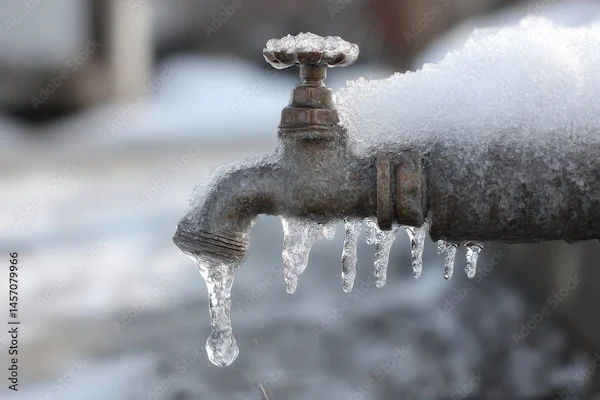Climate Change and Health Impacts
Discover how climate change affects human health, from rising temperatures and air pollution to disease outbreaks and food insecurity. Learn about its impacts and ways to protect your well-being.

Written by Dr.Sonia Bhatt
Last updated on 3rd Jul, 2025

Climate change refers to long-term alterations in global weather patterns, largely resulting from human activities. These shifts significantly impact health, wellbeing, and safety. Notable effects include rising temperatures in both air and sea, which can lead to heat-related health problems; changing rainfall patterns that may cause droughts or floods; and an increase in the frequency and intensity of extreme weather events like storms and wildfires. Additionally, rising sea levels pose risks of erosion and flooding in coastal areas. Health consequences include injuries from extreme weather, deteriorating air quality that worsens respiratory conditions, shifts in infectious disease patterns, and challenges to food and water security. If not addressed, climate change could lead to severe and widespread consequences, making it imperative to take urgent action at global, national, community, and individual levels.
Direct and Indirect Health Risks of Climate Change
Climate change introduces both direct and indirect health risks.
1. Direct health risks come from climate-related exposures associated with hazards like:
Floods
Storms
Air pollution incidents
Extreme heat, often known as "heatwaves"
2. Indirect health risks arise from environmental and social factors that influence how climate change impacts individuals and communities. These factors can either:
Alleviate the effects of climate change, or
Intensify its consequences
These environmental and social factors affect:
Agricultural yields
Cultural practices
Pressures on housing and communities
The transmission of infectious diseases
Water quality and availability
Trends in population movement and displacement
Economic stability and poverty levels
The health risks linked to climate change may:
Be short-lived, such as illnesses caused by extreme heat
Persist for several months or years, like mental health challenges following flooding
Be long-lasting or irreversible, as seen in the loss of cultural identity among Indigenous communities.
Impact on Air Quality and Respiratory Health
The combustion of fossil fuels significantly contributes to climate change and air pollution. The World Health Organization (WHO) reports that 99 percent of the global population is exposed to unsafe air quality, which is linked to chronic illnesses such as cancer, heart disease, and respiratory conditions. Air pollution accounts for approximately 6.7 million deaths each year, with low- and middle-income countries facing 90 percent of these premature fatalities.
Climate change can exacerbate air quality issues by altering weather patterns and increasing the frequency of heatwaves, leading to higher risks for cardiovascular and respiratory diseases. Extended pollen seasons for plants like birch and oak, along with longer fungal spore seasons, may worsen seasonal allergies. Additionally, more frequent bushfires contribute to increased smoke and poorer air quality. Individuals with asthma, lung conditions, diabetes, and heart disease are particularly vulnerable to fine particulate matter (PM2.5) and heightened pollen levels, which can aggravate conditions such as asthma and hay fever.
Extreme Weather Events and Health impact
From 1970 to 2021, extreme weather events like storms and floods led to over two million fatalities, primarily in low- and middle-income countries. Climate change is exacerbating the frequency and intensity of these events, placing significant strain on healthcare systems and disrupting care, especially in vulnerable areas. Climate change is causing more intense heat waves, with nearly 50,000 deaths reported in Europe in 2023 itself. By 2100, it is estimated that around 2 billion people could experience severe heat, particularly in South and Southeast Asia. Wildfires are also becoming increasingly common and severe.
Health Impacts:
Increased likelihood of heat-related illnesses, such as heatstroke and dehydration
Deterioration of existing heart and lung conditions
Possible fatalities due to dangerously high indoor temperatures
Adverse effects on wildlife, agriculture, and food security
As global temperatures rise, the frequency of heatwaves is also increasing, putting infants, older adults, and individuals with chronic health issues at greater risk. High temperatures can trigger asthma attacks, exacerbate heart conditions, and lead to preterm labour, making it essential to take precautions during hot weather.
Water Quality and Waterborne Diseases
Climate change is leading to more frequent and severe droughts due to decreased rainfall and higher temperatures, disrupting agriculture and resulting in food shortages and insecurity.
The frequency and intensity of severe storms are increasing due to climate change, as higher temperatures result in greater moisture evaporation, leading to extreme rainfall and flooding. Warmer oceans also play a role in the formation of tropical storms, such as cyclones and hurricanes, which can inflict significant damage on communities and economies. Additionally, changes in climate are affecting water availability, especially in already stressed regions, heightening agricultural droughts and increasing ecosystem vulnerability, while expanding deserts threaten farmland and reliable water sources. At the same time, the oceans are absorbing much of the excess heat, causing rising sea levels from melting ice sheets and increased acidity, which pose risks to marine life and coral reefs.
Expected impacts of climate change encompass reduced water quality, alterations in water availability. These changes exert pressure on natural water systems, potentially resulting in algal blooms, and also affect drinking water and wastewater systems, increasing health risks for communities.
Health Risks Associated with Water: These include:
Threats to drinking water and irrigation sources
A rise in waterborne diseases like giardiasis and cryptosporidiosis
Physical injuries and mental health issues from extreme weather events
Socio-economic and environmental challenges linked to water insecurity.
Food Security and Nutritional Impact
Climate change disrupts agriculture and seafood harvesting, jeopardising food availability, especially for remote communities. Warmer temperatures and changing ocean conditions increase the risk of marine toxins and food spoilage due to power outages. These disruptions contribute to a global increase in hunger and malnutrition. Fisheries, crops, and livestock are increasingly at risk, and ocean acidification threatens marine resources. Changes in snow and ice cover also affect food supplies in Arctic regions, while heat stress diminishes grazing land and crop yields.
Food safety is compromised and rising temperatures can increase pathogens and spoilage rates. Currently, around 800 million people are undernourished, with a significant portion of the global population relying on plant-based nutrients. Climate-related disruptions disproportionately affect vulnerable groups, including women, children, older adults, low-income communities, Indigenous Peoples, and small-scale producers.
Vector-Borne Diseases
Climate change is contributing to the rise of disease outbreaks. Vectors like mosquitoes are expanding into new areas, with extreme flooding increasing the risk of waterborne illnesses such as cholera. Rising temperatures may also result in a 20% increase in cases of dengue, Zika, and chikungunya, while by 2040, malaria could put up to 5 billion people at risk.
Changes in land use and climate are bringing humans and animals into closer proximity, heightening the risk of zoonotic diseases like COVID-19. Moreover, increased mosquito populations and rising temperatures may lead to outbreaks of West Nile virus in the future.
Mental Health and Well-being
The mental health effects of climate change are far-reaching, encompassing trauma from severe weather, ongoing stress from shortages of food and water, and anxiety linked to conflict and migration. These challenges particularly affect young people, who must navigate an uncertain future. Direct experiences of economic instability, and the loss of cultural landmarks, can lead to increased mental health disorders and reduced overall well-being.
Concerns about climate change and its effects on future generations often result in feelings of fear, stress, and anxiety, commonly referred to as climate or eco-anxiety. While spending time in nature can enhance mental health and encourage physical activity, climate change-related factors such as pollution and invasive species can harm natural environments, diminishing these benefits.
Who is Most at Risk from Health Effects of Climate Change?
Certain groups are particularly vulnerable to the impacts of climate change:
At-Risk Age Groups: Unborn babies, infants, young children, and older adults.
Children: Prone to heat stress, dehydration, and air pollution due to developing immune systems.
Pregnant Women: At increased risk of heat stress and sensitive to air pollution.
Older Adults and Individuals with Pre-existing Conditions: More likely to experience dehydration, heat stress, and worsening heart and lung diseases.
Residents of Rural and Remote Areas: Islander communities, low-income individuals, and others face greater risks due to limited healthcare access and exposure to extreme weather events.
Individuals with Limited Resources: Those facing poverty, discrimination, and inadequate housing.
People with Disabilities and Chronic Conditions: More vulnerable due to their health challenges.
Preventive measure to curb effects of climate change
Climate change is an urgent global challenge and it’s crucial to understand how to adapt and protect ourselves in these evolving circumstances.
1. Coping with Extreme Heat
To maintain your health during rising temperatures and heat waves:
Stay Hydrated
Never Leave People in Cars
Find Cool Areas
Plan Ahead
Check on Vulnerable Individuals
2. Protect Against Mosquito Bites
To minimise risks from mosquito-borne diseases:
Wear Loose Clothing: Choose long sleeves and pants.
Use Insect Repellents: Apply products containing DEET or picaridin.
Limit Outdoor Activities: Stay inside while mosquitoes are most active.
Remove Standing Water: Eliminate breeding sites around your home.
Fit Screens on Windows: Ensure proper mosquito protection.
3. Minimise Risks from Floods and Waterways
To avoid health hazards in waterways:
Avoid Swimming After Rain
Stay Informed
4. Be Aware of Air Pollution
To protect against poor air quality:
Monitor Pollution Levels
Be Cautious of Ozone
Stay Updated on Bushfires
Watch for Pollen Levels
5. Keep Food Safe
To minimise the risk of foodborne illnesses:
Store Food Correctly: Keep perishable items refrigerated.
6. Look After Your Mental Health
To support your mental well-being:
Stay Connected: Maintain supportive relationships.
Seek Help When Needed: Don’t hesitate to contact professionals for support.
Conclusion
Health is essential for our well-being, happiness, and economic productivity. Climate change poses significant risks to health, but proactive measures can help communities and individuals mitigate these effects. Our health is interconnected with the climate; rising temperatures, sea levels, and extreme weather can have serious implications, particularly for vulnerable populations. As climate change escalates, it can deepen existing inequalities, impacting those who are least able to cope. Tackling these challenges requires a unified effort to build resilience and promote equitable health outcomes for everyone.
Consult Top General Physician
Consult Top General Physician

Dr Syed Mateen Pasha
General Physician
2 Years • MBBS
Bengaluru
PRESTIGE SHANTHINIKETAN - SOCIETY CLINIC, Bengaluru

Dr. Ashita Kuruvilla
General Practitioner
6 Years • MBBS
Kolkata
KVC CLINIC, Kolkata

Dr Aakash Andgi
General Physician/ Internal Medicine Specialist
9 Years • MBBS MD
Bengaluru
Apollo Clinic, JP nagar, Bengaluru

Dr. Anand Ravi
General Physician
2 Years • MBBS
Bengaluru
PRESTIGE SHANTHINIKETAN - SOCIETY CLINIC, Bengaluru

Dr. Mohamed Azeem
General Physician/ Internal Medicine Specialist
2 Years • MBBS,MD(Internal Medicine) CCEBDM
Karaikudi
Apollo Hospitals Karaikudi, Karaikudi




